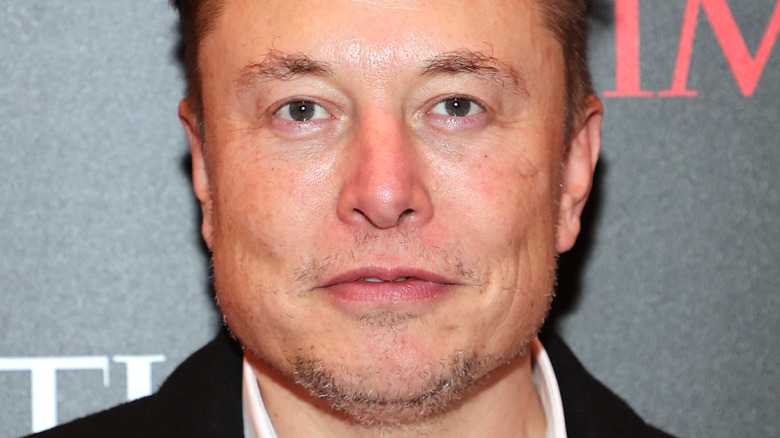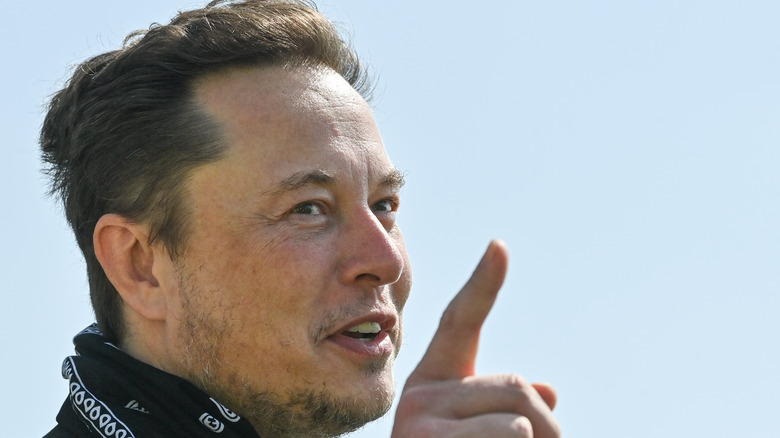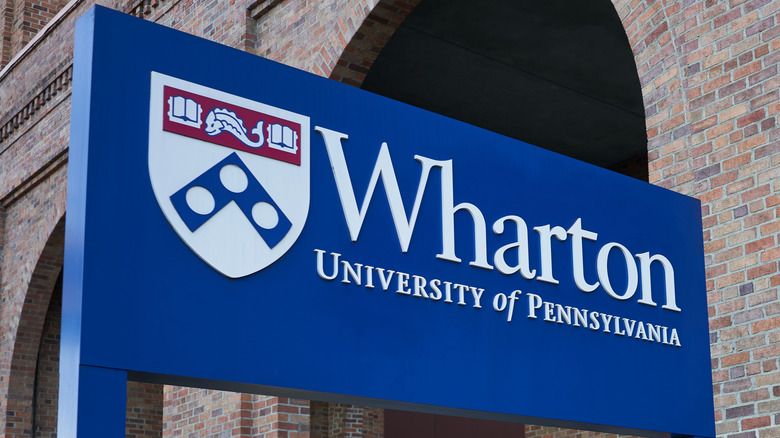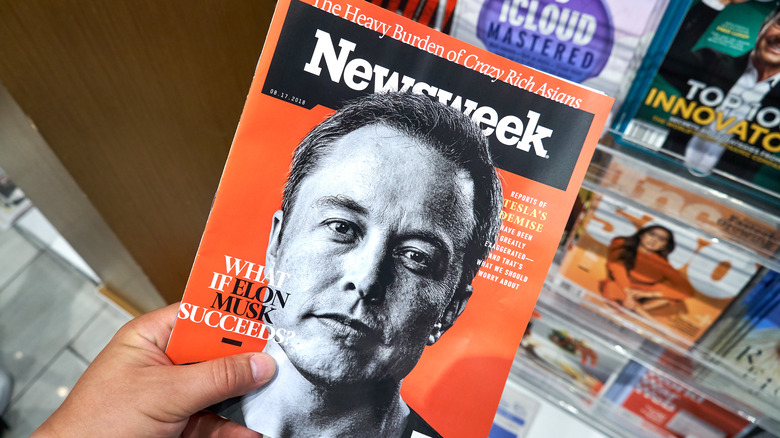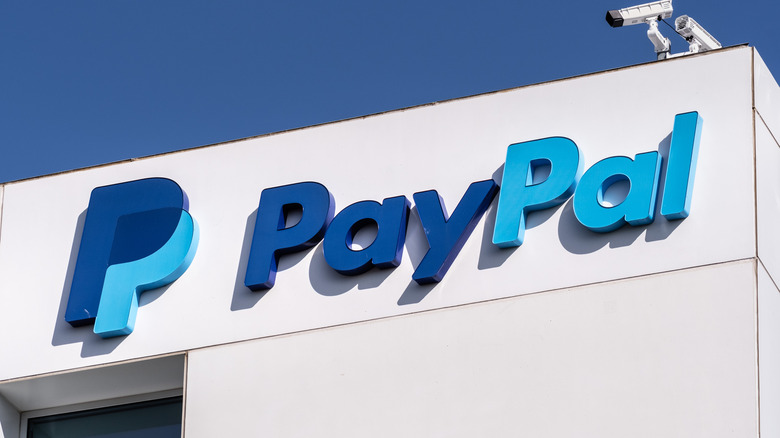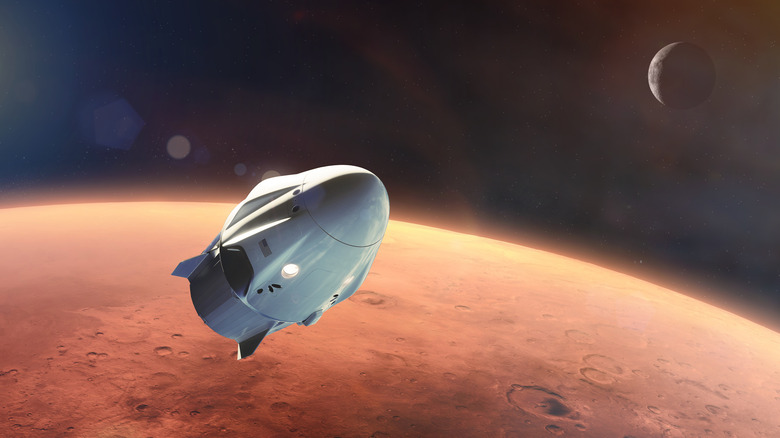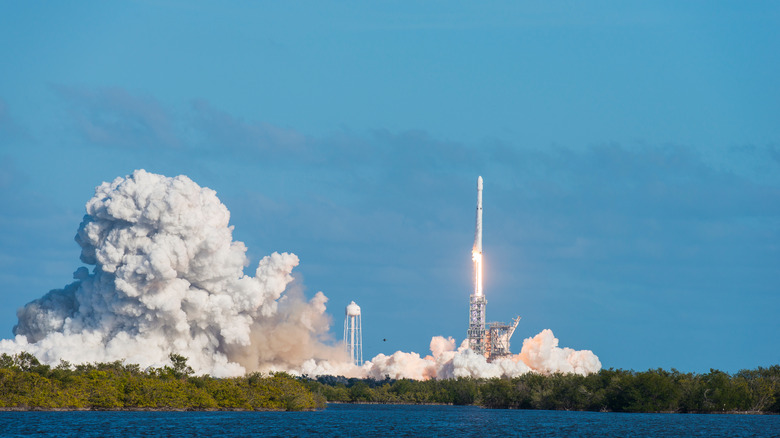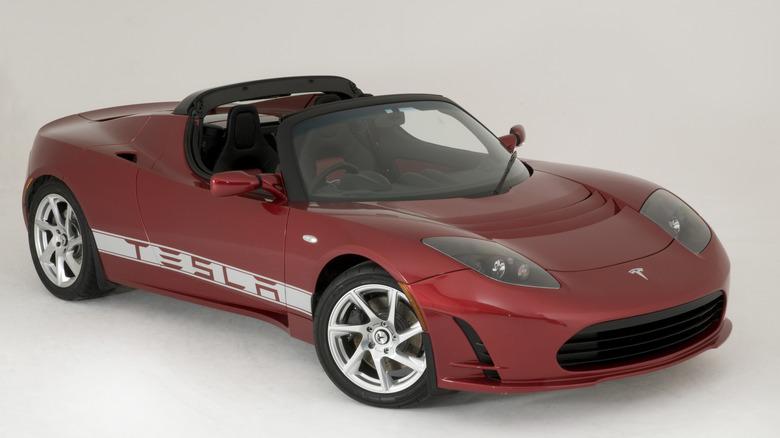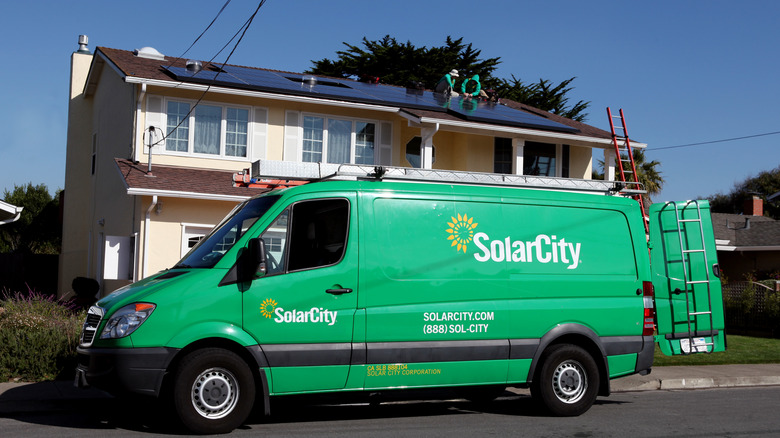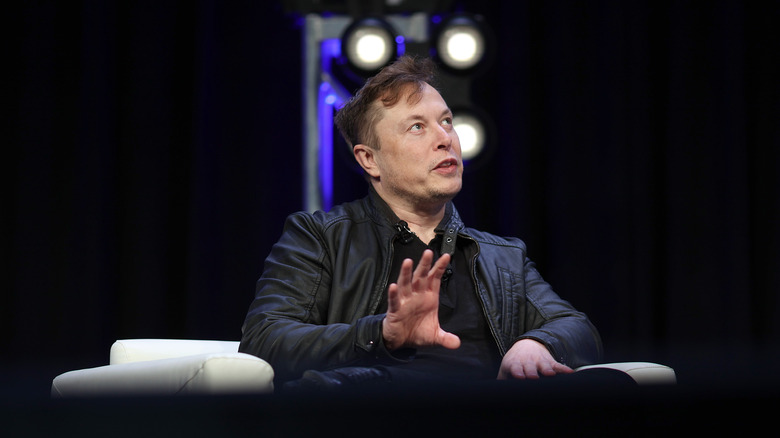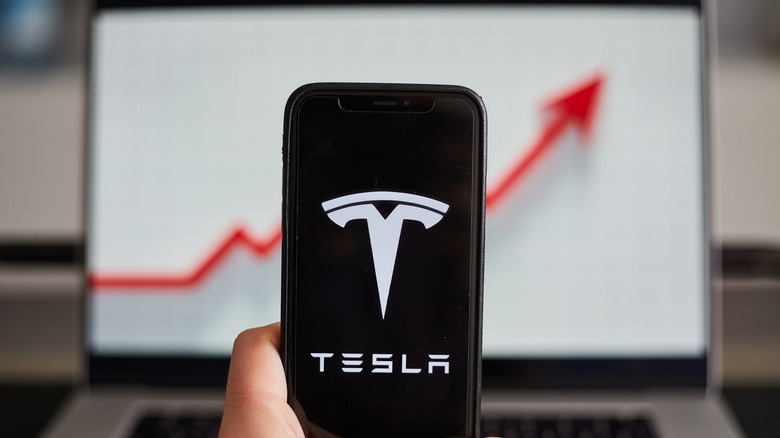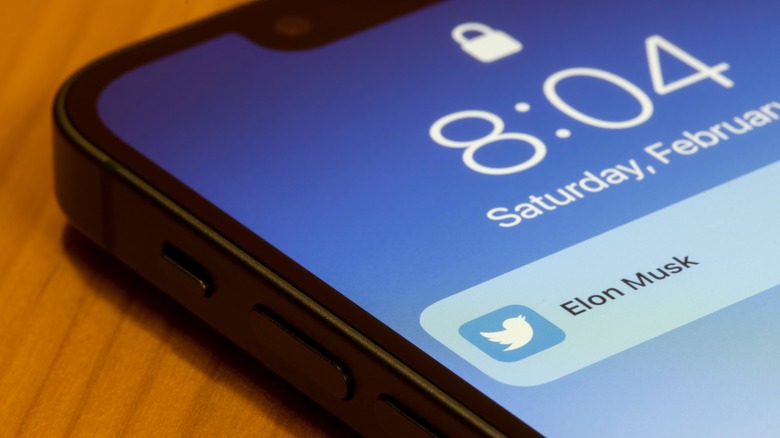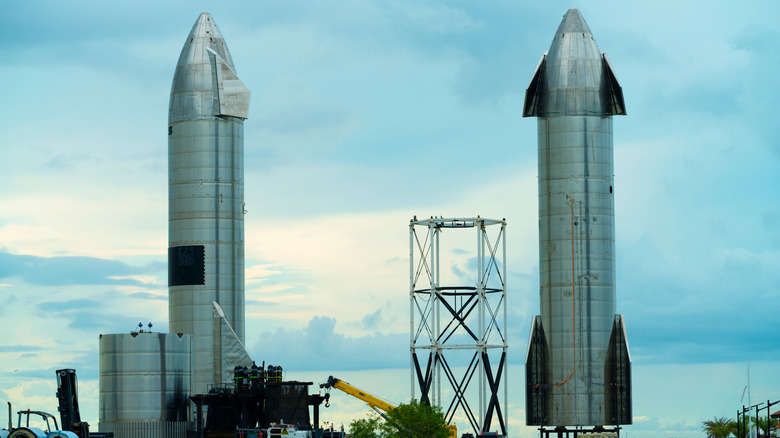This Is How Much Money Elon Musk Is Actually Worth
Elon Musk is an entrepreneur who founded or co-founded various innovative businesses including PayPal, SpaceX, and Tesla, and has a net worth of over $289 billion dollars (although with numbers that big, it's constantly fluctuating by more than what most will earn in a lifetime). This makes him one of the wealthiest people in the world and depending on the day, perhaps the richest. Musk, however, seems to disagree. Business Insider reported him stating, "I do think that Putin is significantly richer than me." Musk was of course referring to the Russian autocrat who has been speculated to hold billions of dollars in secret. That truth may never be known.
Musk first entered the scene as the founder of PayPal, the ubiquitous internet company that allows for secure online transactions. He used the proceeds from the sale of PayPay to start two new companies: SpaceX and Tesla. Aside from making not a little money, these companies are relevant for trying to realize Musk's dual and connected vision of colonizing outer space and building a sustainable future on Earth. As Elon Musk stated on the SpaceX website, "to wake up in the morning and think the future is going to be great – and that's what being a spacefaring civilization is all about. It's about believing in the future and thinking that the future will be better than the past."
Early life
Elon Musk was born on June 28, 1971, in Pretoria, South Africa. According to Biography, success runs in the family. Elon's father Errol Musk was a successful and wealthy engineer while his mother, Maye, was a Canadian model. Elon also has two younger siblings, a brother Kimbal who became a wealthy restaurateur, and a sister, Tosca who became a romance film producer.
At an early age, Elon was notably different from other children. As a boy, he daydreamed so much about possible inventions that his parents had his hearing tested. As a child and teenager, Elon was shy, introverted, and small. He learned karate and how to wrestle to defend himself.
Meanwhile, his home life seemed to be falling apart. His parents divorced in 1980 when he was age 10. Elon was estranged from his father thereafter. In a remark during an interview with Rolling Stone, Elon stated, "He was such a terrible human being. You have no idea." Around the time of the divorce, Elon developed an interest in video games. He sold his first creation at age 12, a game named "Blastar" which he sold for $500.
Education
In 1988, at age 17, Elon Musk left South Africa for Canada. According to the Immigrant Learning Center, this was because South Africa had compulsory military service. Musk would later state that he had no issue serving in the military in theory, but he did object that his country's military was being used to enforce apartheid. Musk would later state that "suppressing Black people just didn't seem like a really good way to spend time."
His first stop was Queen's University in Ontario where he stayed with some relatives and took on multiple jobs to finance his education. However, according to Amherst College, which later conferred an honorary degree on Musk, he was offered a scholarship to the Wharton School of the University of Pennsylvania. He graduated with degrees in economics and physics and also served as a teaching assistant – he was apparently a tough grader based on an exam he graded that was auctioned for over $7,753.
Meanwhile, he toyed with the notion of a Ph.D. in physics and even enrolled at Stanford in 1995, but decided after only two days in the program to drop out. He apparently believed that he could do more to help the world by making lots of money than by getting a degree. But Elon Musk decided to remain in the United States – he ultimately became an American citizen in 2002.
Zip2
In 1995, after dropping out of graduate school, Elon Musk founded the first of what would be a string of enterprises. According to Britannica, Musk conceived an online business directory ultimately named Zip2, and recruited his brother Kimbal and friend Gregory Kouri as partners.
The company struggled for money at first. In fact, Musk slept in the office since he couldn't afford an apartment. Musk later would state (as quoted in CNBC), "We showered at the YMCA and we were so hard-up that we only had one computer. The website was up during the day and I was coding it at night, seven days a week, all the time." Musk's girlfriend at the time had to sleep at the office with him.
Fortunes changed in 1996 when Zip2 received a $3 million infusion from an investment firm in exchange for majority ownership. Musk was subsequently removed as CEO and replaced with Richard Sorkin, though he remained executive vice president and chief technology officer. Musk, for his part, felt strongly against the new CEO's policies. Subsequently, during a proposed merger with CitySearch, Musk was able to convince the board of directors to replace Sorkin with new leadership. In 1999, Compaq Computer Corporation bought Zip2 for $307 million. Time reported that from the sale, Musk made about $22 million. From this, he would bootstrap his way up to billionairehood.
PayPal
Elon Musk's next move was founding an online banking company called X.com using some of the proceeds from Zip2. According to Time, he partnered with Peter Thiel, who had co-founded an online payment system named Confinity. Both men, incidentally, were involved in a major accident as Musk was showing off his $1 million McLaren F1 supercar to Thiel. The uninsured car was totaled, but both men walked away unharmed. Perhaps this incident cemented their partnership. In any event, X.com and Confinity merged, and in March 2000, PayPal was born.
Musk was initially the CEO, but he immediately got into a major fight over whether the company's servers should be on Unix or Microsoft Windows – Musk favored Windows while the Chief Technology officer vociferously wanted Unix. In September of that year, just six months after becoming CEO, Business Insider reports, while en route to Australia for a vacation, Musk was fired as CEO by the board and replaced with Thiel. However, Musk kept his stake in PayPal, so when eBay bought the company in 2002 for $1.5 billion, Musk made hay. Figures vary, but Time reported he netted up to $180 million from the sale.
Vision
After the sale of PayPal, Elon Musk had such a war chest of cash on his hands that he was able to, realistically, start to realize his long-term vision of a better future built upon technology. He wanted to create something transformative.
Silicon Republic provides some insight into Musk's motives, pointing out that he has a dream of a future built upon a variety of interlocking technologies that could conceivably address some of the largest issues humanity is facing, including climate change, overpopulation, and better quality of life. He viewed — and probably still views — technology as a tool to achieve transcendence away from evolution's shackles.
Musk obviously thinks big and Futurism noted some of his big goals such as self-driving cars, renewable energy, and the biggest dream of all – making humanity a multi-planetary species. Of course, if he makes a few dollars along the way so much the better. Ultimately, the sense of Elon Musk is that he is not so much driven by money but by ideas. But to bring these ideas to fruition, he needed money, which brings us to the foundation of his most ambitious venture, SpaceX.
SpaceX
Elon Musk wanted to increase interest in space exploration. According to Space.com, he initially conceived of sending a greenhouse called Mars Oasis to the red planet. His bubble was soon burst by the estimated costs. Instead, in 2002 (per Britannica), he founded Space Exploration Technologies Corporation, or SpaceX for short. Inc explains that Musk brilliantly stated its goal: "We're going to land people on Mars by 2025." It is certainly a bold, audacious statement which at the time of the company's founding seemed ludicrous.
However, since its founding, SpaceX has had a considerable record. It became the first private company to successfully launch and return a spacecraft to Earth. This, of course, happened only after multiple failures. However, its Falcon 1 rocket was so impressive that NASA signed SpaceX to a contract to haul cargo to the International Space Station for almost $400 million. Then, in 2006, it won a $1.6 billion contract with NASA for commercial resupply services. These contracts have expanded, as well as SpaceX's services, which also included the first orbital space tourism flight in 2021.
Still, the bulk of SpaceX's revenues are through government contracts. According to Business Insider, that same year the company was valued at $100 billion. Since, according to Barron's, Musk owns roughly half of SpaceX, $50 billion of his fortune is in space.
Tesla
While SpaceX looked to the stars, Elon Musk simultaneously turned his attention to Earth. With $30 million in investment money, he became, according to Britannica, a co-founder of Tesla Motors. In the beginning, Tesla's raison d'etre was to build the world's first electric sports car. This was achieved in 2008 with the release of the Roadster, which had a range of 245 miles on a single charge – something unprecedented in wholly electric cars. The Roadster at first retailed for over $100,000 making it out of reach for most consumers though it was thought that prices would come down over time.
Musk took over as CEO of Tesla in the same year that the Roadster was released. As technology improved, Tesla began to concentrate on sedan models of electric cars including the Model S (released in 2012) and the crossover Model X (released in 2015), and the Model 3 (released in 2017). Tesla has since expanded its line to include trucks.
According to Statista, in 2021 Tesla held a 14% market share of the electric vehicle market (the largest) and was poised to make more revenue as its brand had become synonymous with electric vehicles. In fact, CNN reported that in that same year, the company was valued at over $1 trillion. Not bad, although Apple is worth double that. Either way, Tesla gives Musk the bulk of his net worth. CNBC reported in 2022 that he was the largest stockholder in the company with a roughly 17% stake.
SolarCity
In 2016, Tesla acquired SolarCity, a company devoted to the installation of solar panels, for $2.6 billion. According to CNBC, the company was founded in 2006 by a pair of Elon Musk's cousins, Peter and Lyndon Rive, and he had become chairman of the board. Musk's other companies also invested in it through the purchase of bonds. However, after the purchase, the solar division struggled. Solar roof installations dropped 43% and Tesla started shifting its employees around. Meanwhile, it suffered from safety incidents tied to whistleblower complaints, as well as charges that the purchase of SolarCity was simply to bail out Musk's cousins from a failed business. SolarCity dropped the name and, as a sign of faith in the solar division, Tesla changed its formal name from Tesla Motors to just Tesla, Inc. (per Britannica).
However, in 2021, the tide began to shift for Tesla's solar panel division. According to TechCrunch, revenue started to grow mainly on the energy storage side. There was $801 million in revenue, which, while small compared to all of Tesla, aligns well with Musk's vision of the future with green energy. Of paramount concern to Musk is to develop less expensive batteries based on iron, rather than the rarer metals of cobalt and nickel.
Real estate
When you are as rich as Elon Musk, you might expect that you can own – well, almost anything. Curiously, in terms of real estate, Musk now possesses less than you might think. According to Business Insider, at one point, he had at least seven residences, mainly in the Los Angeles area, valued at roughly $100 million. For example, in 2012, he bought a Bel-Air mansion that he had been renting for two years for $17 million. This 20,000+ square foot, 7-bedroom home also included a two-story library, pool, gym, wine cellar, and tennis court.
On May 1, 2020, Musk tweeted, "I am selling almost all physical possessions. Will own no house." In March 2022, MarketWatch reported that he had sold seven homes for a total of $130 million. He only netted about $25 million from the sales since he had mortgages on several properties. Why Elon Musk would need a mortgage is unknown, but his reason for the sales was to simplify his life. He tweeted in 2021, "My primary home is literally a ~$50k house in Boca Chica / Starbase [in Texas] that I rent from SpaceX. It's kinda awesome though."
Salary
It is not surprising that big CEOs make big bucks. According to CNBC, in 2021 CEO's at the 100 largest companies in America made $1.28 million more than their average employee. Coca-Cola's CEO James Quincy, for example, made $1.6 million in salary in 2020 while Apple's Tim Cook made $3 million. Yet even with those types of salaries, it would take more than a lifetime to earn the wealth of a quarter trillionaire like Elon Musk. So what is Elon Musk's take-home salary?
As strange as it may sound, Elon Musk does not make much in salary. Business Insider reported that in 2020, Tesla cut Musk's CEO salary to zero. The prior year, it had been $23,760 and in 2018 it was $56,380. Musk is compensated by stock options, which means as Tesla and SpaceX's fortunes have soared, so has Musk's. Fortune relates how his current compensation package was designed in 2018 and says that when the company meets certain benchmarks, it triggers stock options that allow Musk to buy a percentage of stock at the $70 2018 price. The idea is that Musk's compensation was based on Tesla's financial performance. It worked for both. Many of these milestones Musk made ahead of schedule, thus skyrocketing his fortune.
Social media
Elon Musk is very connected, particularly on Twitter where the ubermogul has nearly 80 million followers. With such a following, Musk is able to communicate information that can potentially alter the price of his companies' stock and thus his own fortunes.
Reuters reported that in 2018 Musk had hinted on Twitter that he had funding to buy out Tesla and make it a private company. This caused havoc with the stock price and the SEC charged Musk with making misleading statements. He was forced to step down as chair of Tesla, and although he remained CEO, all Twitter posts were to be approved by the company from then on. Musk, however, chafed at this settlement and rankled the SEC again when, as told by the Guardian, in November 2021 when in objection to proposed taxes upon billionaires he asked his Twitter followers to vote on whether or not he should sell 10% of his Tesla stock. They approved.
Since the latest brouhaha, CNBC reported that Musk was openly courting the idea of establishing a new social media platform that promoted free speech. However, it appears that Musk might try taking a different route. CNBC reported in April 2022 that Musk bought over a 9% share of Twitter. He was even offered a seat on the company's board of directors, which he declined.
Future projects
Elon Musk has hardly slowed down and has stayed consistent with his vision: he continues to plan to send people to space and colonize other planets while simultaneously working for a more sustainable future on earth. One of his biggest plans, as described by Space.com, is to shepherd humanity into a multi-planetary age. This may be realized by the launch of "Starship," a spacecraft designed to haul people and cargo into deep space such as the moon and Mars. The rocket, when fully stacked with its launch booster called "Super Heavy" will stand approximately 390 feet, the tallest rocket ever. Currently, they are working on reducing space flight costs to such a level that travel to space will ultimately become cheap and more profitable.
Meanwhile, Musk is involved in other projects, such as traffic improvement through the boring tunnels by his Boring Company, the integration of technology with the human brain by his Neuralink enterprise, and the development of beneficial artificial intelligence with OpenAI.
While the Guardian reports that Elon Musk has a great number of critics who lambast his stance on taxes, opposition to organized labor, and his willingness to play down the COVID-19 pandemic, he is nevertheless important. Time recognized Musk as its 2021 Person of the Year not so much because of Musk's net worth, but the vision and drive that brought it to him.
